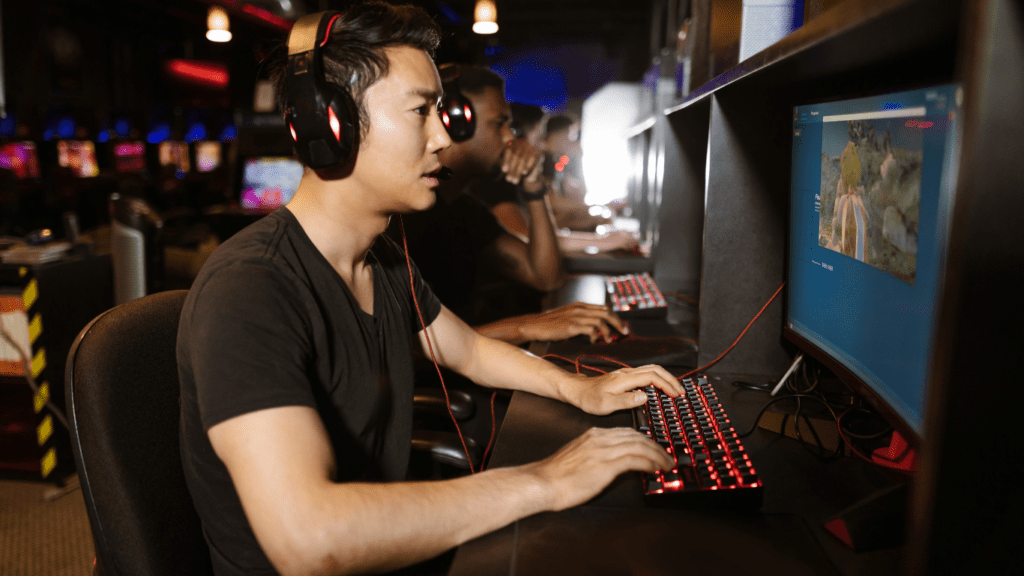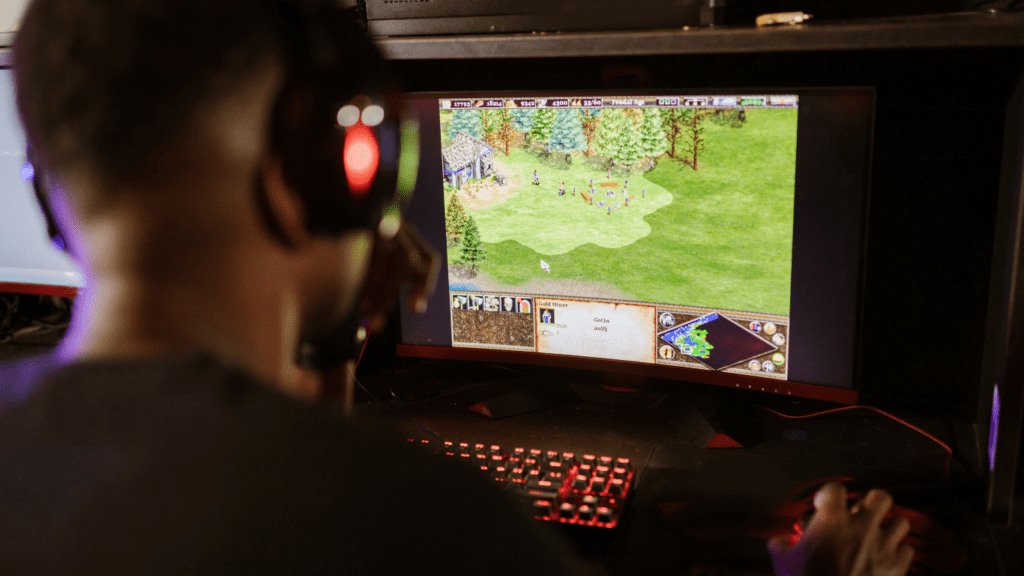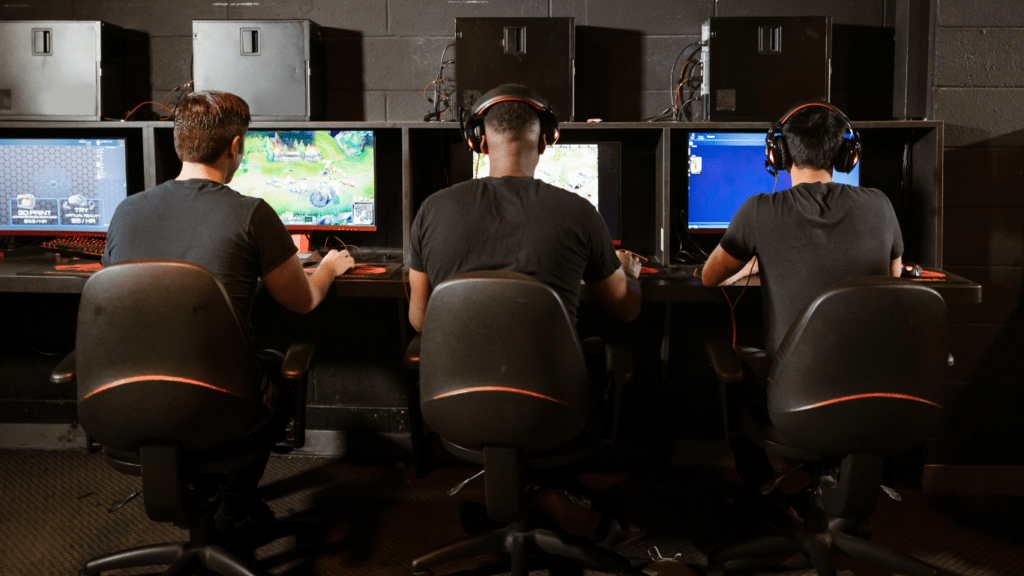Understanding E-Sports
E-sports, short for electronic sports, refers to organized, competitive video gaming. Unlike casual gaming, e-sports involves professional players, teams, and tournaments. Popular games in e-sports include “League of Legends,” “Dota 2,” “Counter-Strike: Global Offensive,” and “Overwatch.” Many e-sports events offer substantial prize pools, drawing thousands of viewers both online and in-person.
Key Components
To understand e-sports fully, focusing on several key components is essential. These elements shape the e-sports ecosystem.
- Games: E-sports revolves around specific games that have a competitive scene. Titles like “Fortnite” and “Call of Duty” have garnered large followings.
- Players: Professional players dedicate significant time to honing skills, often practicing for hours each day.
- Teams: Many e-sports players join teams that provide support, coaching, and resources. Teams like “Team Liquid” and “Fnatic” are well-known.
- Tournaments: Organized competitions, such as “The International” and “Overwatch League,” showcase the best players and teams.
Why E-Sports Matter
Understanding why e-sports matters helps grasp its impact. It’s not just about playing games.
- Economic Impact: E-sports generates massive revenue. In 2021 alone, the e-sports market reached $1.1 billion.
- Community Building: E-sports creates global communities. Fans and players connect through online forums, social media, and live events.
- Career Opportunities: Beyond playing, e-sports offers various career paths, including coaching, broadcasting, and event management.
E-Sports vs. Traditional Sports
Comparing e-sports to traditional sports highlights similarities and differences.
- Similarities: Both involve competition, skill development, and team cooperation.
- Differences: E-sports emphasizes digital interaction, while traditional sports focus on physical activity.
Understanding e-sports involves recognizing its structure, significance, and comparison to more conventional forms of competition.
Choosing Your Game

Selecting the right game is crucial when starting out in e-sports. Your choice should align with your interests and strengths.
Popular E-Sports Titles
Some games dominate the e-sports scene. Titles like “League of Legends”, “Dota 2”, “Counter-Strike: Global Offensive”, and “Fortnite” offer robust competitive scenes. These games have well-established tournaments, active communities, and accessible resources for new players. Exploring popular titles first helps gauge where your passion lies and understand what each game entails.
Factors to Consider
Consider several factors when choosing your game. First, assess your personal interests—playing a game you enjoy enhances motivation. Next, consider the game’s player base; popular games offer more opportunities for competition and networking. Evaluate the learning curve; some games require more time to master, so aligning your choice with your commitment level is key.
Lastly, research the game’s competitive scene. Strong support from developers and frequent tournaments indicate a thriving e-sports environment, essential for long-term involvement.
Essential Gear and Setup
To excel in e-sports, having the right gear and setup is crucial. The hardware and accessories you choose can significantly impact your performance and overall gaming experience.
Hardware Requirements
High-performance hardware is essential for competitive gaming. Invest in a powerful gaming PC with a fast processor like an Intel i7 or AMD Ryzen 7, at least 16GB of RAM, and a dedicated graphics card such as an NVIDIA GeForce RTX or AMD Radeon.
A reliable monitor with high refresh rates and low response times, such as a 144Hz monitor, ensures smooth visuals and responsive gameplay. Opt for a mechanical keyboard and a high-precision gaming mouse for better control and faster response times.
Recommended Accessories
Quality accessories can enhance your e-sports experience. Use a gaming headset with clear audio and a noise-canceling microphone for better communication with teammates. A comfortable gaming chair supports long hours of play and promotes good posture.
Consider a large mouse pad to enable smooth and wide-ranging movements, and a strong internet connection, preferably a wired Ethernet connection, reduces latency and ensures stable online play. These accessories can provide a significant edge in competitive environments.
Improving Your Gameplay
To excel in e-sports, improving your gameplay is crucial. Focus on refining your strategies and committing to regular practice.
Strategies and Tips
Analyze Professional Matches
Watch professional matches to understand advanced strategies. Pay attention to player positioning, decision-making, and coordination with teammates.
Learn from Your Mistakes
Review your own gameplay to identify mistakes. Use replay features to pinpoint errors and develop corrective measures.
Stay Updated with Meta Changes
Game updates often shift the meta. Adapt your strategies to stay competitive by following patch notes and community discussions.
Communicate Effectively
Effective team communication improves coordination. Use clear, concise callouts and listen to teammates for better team performance.
Training and Practice
Establish a Routine
Consistent practice schedules build skill. Allocate specific times for practice sessions, focusing on different aspects of the game.
Use Aim Trainers
For shooters, aim trainers enhance accuracy. Tools like Aim Lab and Kovaak’s help you improve your shooting precision and reaction time.
Participate in Scrimmages
Join scrimmages to practice in a competitive environment. Scrims replicate real match conditions, providing valuable experience.
Focus on Specific Skills
Target individual skills during training. For example, practice last-hitting in MOBAs or movement techniques in shooters.
Track Your Progress
Monitor your improvement over time. Use performance metrics to gauge your development and adjust your training accordingly.
Improving your gameplay in e-sports requires diligent effort and strategic adjustments. Balancing theory and practice ensures steady progress and enhances your competitive edge.
Joining an E-Sports Community
Being part of an e-sports community is crucial for networking, learning, and improving your skills. Engaging with others who share your passion can provide insights, support, and opportunities.
Online Forums and Groups
Online forums and groups are excellent starting points for joining an e-sports community. Platforms like Reddit, Discord, and dedicated e-sports websites host numerous groups focused on specific games and aspects of e-sports.
For example, the subreddit r/leagueoflegends offers various discussions, strategies, and updates on the game. Discord servers often have channels categorized by game, role, or skill level, facilitating targeted interactions. Joining these groups allows you to ask questions, share experiences, and even find teammates for casual and competitive play.
Local Tournaments and Events
Participating in local tournaments and events helps build real-world connections within the e-sports community. Local gaming cafes, community centers, and specialized e-sports venues frequently host tournaments. These events provide the chance to meet like-minded individuals, observe different playstyles, and gain competitive experience. For instance, weekly tournaments at local gaming cafes might cover popular titles like “Fortnite” or “CS: GO.” Being active in these events can enhance your gaming network and offer practical experience in a competitive setting.
Streamers and Influencers to Follow
Following the right streamers and influencers in e-sports provides both educational content and entertainment. These thought leaders can enhance your understanding and inspire your journey in the e-sports world.
Educational Content
Some streamers focus on improving skills and understanding game mechanics. For example, Ninja (Tyler Blevins), originally known for his “Fortnite” streams, offers insightful strategies and tips.
On Twitch, streamers like Shroud (Michael Grzesiek), who specializes in first-person shooters such as “CS: GO” and “Valorant,” highlight advanced aiming techniques and positioning strategies.
On YouTube, content creators like TheScore Esports offer in-depth analyses and documentaries on major tournaments and players. These resources help break down complex game strategies and provide a deeper understanding of competitive play.
Entertainment And Inspiration
Streams and videos also provide entertainment and inspiration. Dr DisRespect (Herschel Beahm IV) on YouTube and TimTheTatman (Timothy Betar) on Twitch combine high-level gameplay with engaging commentary and humor. They demonstrate the blending of personality with gaming, showing how to entertain and maintain a loyal audience.
Additionally, Pokimane (Imane Anys) streams a variety of games while interacting with her audience, providing a friendly and lively environment. Following these influencers gives a glimpse into the dedication required to succeed and the enjoyment that comes from engaging with the e-sports community.
Tables and breakdowns of streamer schedules and content themes can help you discover more influencers that align with your interests. Successfully integrating insights from educational content and entertainment from streamers can elevate your e-sports engagement and skill level.



